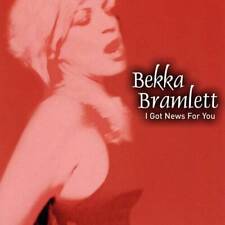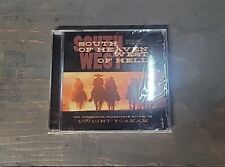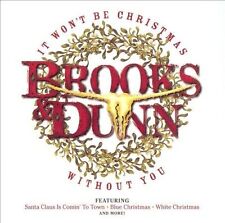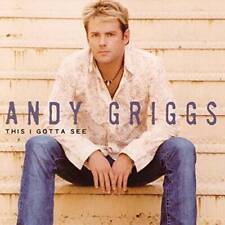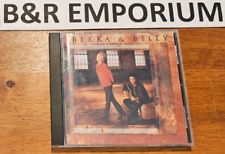|
1969
Show-Biz Blues Fleetwood Mac in 1969 was at its first critical and commercial zenith. It can be argued that 1969 was also a creative watershed for the band, since its output was prodigious that year. After the huge success of "Albatross", which made #1 in the UK charts in February, Peter Green continued the sucession of hit singles, keeping him at this creative peak while at the same time indicating the difficulties he was having in coming to terms with his new-found popularity. Before the next single, however, there were other projects in the works. The band's second album, Mr. Wonderful , was not released in America, but since a record was needed to cash in on the success of Fleetwood Mac's first US tour, another album, entitled English Rose , was released in early January. This album was an assemblage of both old and new tracks, including most of their previous singles, a sampling from Mr. Wonderful , and three new Kirwan compositions, originally slated for a future album, "One Sunny Day", "Without You", and "Something Inside Of Me" (the latter song would not make a UK release until 1976). The cover was also another shocker--this time a resplendent Mick Fleetwood in full drag! In January the band made a pilgrimage (following the conclusion of the tour) to Chess Studios in Chicago to record what was to be their last album of hardcore blues. Included in this effort, which was released toward the end of the year as Blues Jam at Chess , were many of the local blues artists, such as Guitar Buddy, Otis Spann, Walter "Shakey" Horton, J.T. Brown (Elmore James's saxophonist), the late great Willie Dixon, and a host of others. This double album (also called Blues Jam In Chicago , and later Fleetwood Mac In Chicago ) was a fine live-in-the-studio "fathers and sons" production which highlighted the band's enthusiasm for playing with the unimpressed locals. The playing is superb, and even four of Jeremy's Elmore renditions aren't too much to bear; in sharp contrast to Mr. Wonderful , they convey all the fire present in James's originals. The material is budgeted out evenly among the three vocalists in the group efforts, with the band also functioning as a backing group when the Chess artists take the lead. In April, the second of Green's "Big Four" compositions (the first was "Albatross"), "Man Of The World", was released. By now regarded as, along with the likes of Eric Clapton, Jeff Beck, and Jimmy Page, one of Britain's greatest guitarists, Green found his acclaim, and his augmented income resulting from it, increasingly uncomfortable. In "Man Of The World", Green airs his frustrations on vinyl; a world-weary lament on the price of fame. The record itself was originally released only in the UK, on The Rolling Stones' producer Andrew Loog Oldham's Immediate label (since Fleetwood Mac's contract with Mike Vernon's Blue Horizon label (and, therefore, Epic records in the US) had expired). The B-side was also a unique effort. Credited as by Earl Vince and The Valiants, "Somebody's Gonna Get Their Head Kicked In Tonite" is Fleetwood Mac with Jeremy Spencer out in front in his Teddy Boy guise, a very funny song about bar brawling. This departure from his closer-to-Elmore-than-thou approach would be of increasing importance in the future. Since the Blue Horizon contract had expired, a UK-only compilation album was released in August featuring all their old singles up through "Albatross", a song from each of the first two UK albums, and (for whatever reason) a couple of songs from Eddie Boyd's album sessions, "The Big Boat" and "Just The Blues", on which some of the members of the band had functioned as backing musicians. These two songs would constantly resurface later on in Fleetwood Mac's catalog though they clearly do not belong there. The album, entitled The Pious Bird Of Good Omen , also featured unusual cover artwork, showing a heavily-pregnant nun holding an albatross, an obvious effort to cash in on the success of the band's (and Blue Horizon's) most sucessful single so far. Throughout the spring and summer of '69 the band was shopping around for a new label. At one time The Beatles' new Apple label was cited as a likely favorite, but by the autumn the band had settled in with Warner Brothers' Reprise label. The first release from this new partnership was the third of Green's "Big Four" singles, "Oh Well". Recorded during the sessions for the upcoming album, Then Play On , "Oh Well" was Green's magnum opus. It consists of two diametrically opposed parts. The first part, with white-hot guitar leads from Green and Kirwan with Fleetwood and McVie churining along at a breakneck pace, features eight lines of Green's self-effacing lyricism and sense of humor. The second, and so far the closest thing any version of Fleetwood Mac has come to a bona-fide classical piece, features Green again on acoustic guitar and cello, with his then-girlfriend Sandra Ellsdon on recorder. It is as mellow as the first part is frenzied. At just under nine minutes, "Oh Well" had to be split into two parts for the 45 rpm release, with the division coming early into the longer, classical part. The album that immediately followed, Then Play On , is a collection of diverse songs that shows Fleetwood Mac's transition from a strictly hardcore blues outfit to a rock 'n' roll band. Its diversity is heightened by the fact that there are no less than four separate versions of this album, with two different jackets. The two "original" versions of the album are the first British and American pressings. Because "Without You" and "One Sunny Day" were already released in the U.S. in January on English Rose , they were deleted from the US album. The first British album and all US albums have a fold-open jacket featuring a painting by Maxwell Armfield, the inside having a black-and-white shot of the band standing on a sand dune. The British re-release is dressed in a black sleeve with the words "Fleetwood Mac" in large white letters, and another photo of the group (this time in color) on the back, standing on the same dune. Since "Oh Well" had gotten quite a bit of US airplay during the fall of '69, due partially to another American tour as well as the merits of the song (their first single to crack the US charts), Then Play On was rereleased in early 1970 with "Oh Well" in its entirety (and without the pause between parts 1 and 2) this time and without "When You Say" and "My Dream". The British release was not affected by this reapportionment. In 1987, the US compact disc was released. This version includes all the songs that were ever available on the US versions (i.e. "When You Say", "My Dream" and "Oh Well", in addition to all the others) but again without "One Sunny Day" and "Without You". Confusing. Jeremy Spencer does not appear on the album at all, mostly because the Elmore-obsessed Spencer felt he had nothing to contribute. In fact, Jeremy's tongue-in-cheek rock 'n' roll parodies (e.g. "Somebody's Gonna Get Their Head Kicked In Tonite") had long been a favorite among fans of the live shows, in which a gold lame-clad Spencer would croon hilarious versions of rock 'n' roll chesnuts by Elvis, Jerry Lee Lewis, etc. Then Play On was to have included a bonus EP of this sort of material, but the idea was scrapped at the last minute. All of this, of course, obscures the album itself. Then Play On showcases Green's and Kirwan's talents in songwriting and instrumentation. As one might expect, Green dominates the procedings, despite the fact that Kirwan (who was informed by Green when he joined that he had half the next album to write) has more songs, at least originally. Green's continuing personal angst again provided inspiration on even stronger terms, whereas Kirwan's songs tended to be much lighter in nature, even whimsical (as in the case of "When You Say", a song originally written for Christine Perfect), but with the same flawless instrumentation. The three studio jams (the fiery "Madge" songs and the mellow "Underway") also are exciting to hear. Christine Perfect's career with Chicken Shack ended early in the year, with the intention that she would become "just another English housewife". However, she was coaxed at length to "go solo" and released a number of singles under her own name, including a song already released by Chicken Shack, "I'd Rather Go Blind", and the Kirwan-produced (and written) "When You Say". She also formed a touring band and plans were underway to release her first album.
|





